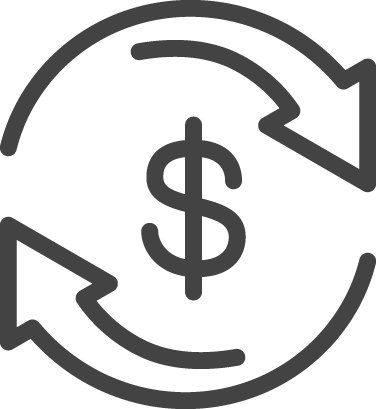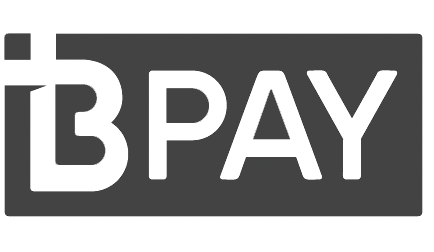Rates
When are rates due?
Rates are due on the following dates for the 2024/2025 rating year;
- 31 August 2024
- 30 November 2024
- 28 February 2025
- 31 May 2025
For any ratepayer wishing to pay the amount in full, payments must be made by 31 August 2024. Overdue instalments will accrue interest of 10.5%.
Rates and Charges 2024/25
What options are there to pay my rates?
There are a number of options for you to pay your rates. If you wish to receive your rates notice via email, please contact Council on 6850 2319 or email rates@forbes.nsw.gov.au.
Option 1 - Payments of rates and charges by quarterly instalments
Rates may be paid by quarterly instalments as shown on the front of you rates notice in accordance with Section 562 of the Local Government Act 1993. Daily interest charges will accrue on any balances not paid in full by the instalment due date.
Option 2 - Payment of rates and charges in full
If you wish to pay the total amount due in full, payment should be made on or before the first instalment due date, as daily interest will accrue immediately on the first instalment if unpaid by August 31.
Late payments
Failure to pay rate instalments by the due date will result in interest charges of 10.5% pa calculated daily on the outstanding balance. This percentage is prescribed by the Minister for Local Government. Council utilises the services of an external debt recovery agency for all outstanding rates and charges and seeks ratepayer assistance in paying their rates by the due dates.
Those people having trouble meeting payments should contact Council’s Rates Officer on (02) 6850 2319 to make suitable financial arrangements as early as possible and before the debt becomes unmanageable.
Ratepayers should be aware that Council has the authority to sell property for the recovery of outstanding rates.
Note: In accordance with Section 566 of the Local Government Act 1993 Council charges interest on all rates and charges that remain unpaid after they become due and payable. Rates and charges become payable one month after the date of service of the rates notice unless a person elects to pay the rates and charges by instalments. Where a person elects to pay by instalments, rates and charges become payable on the due date of the instalment.
Payment Options
 |
At Council |
Payments may be made in person at Forbes Shire Council, 2 Court Street, between 8.30am and 5.00pm, Council accepts Cheque, Cash, Credit Card and EFTPOS. |
 |
Direct Debit |
Payments made from your bank account. Phone Council on 6850 2300 or email rates@forbes.nw.gov.au for an application form. |
 |
By Mail |
Cheques should be payable to: Forbes Shire Council and crossed "Not Negotiable". Mail payments to: Forbes Shire Council, PO Box 333, Forbes NSW 2871 |
 |
BPay Biller Code 172387 |
Telephone BPay Call your bank, credit union or building society to make this payment from your cheque, savings to credit card account. More information at www.bpay.com.au
Note: Please ensure the correct reference numbers are used when using BPay. Reference numbers are different for all rates, water and debtors accounts. Using the incorrect reference number will allocate your payment to the wrong account
|
 |
Internet Banking |
BPay Call your bank, credit union or building society to make this payment from your cheque, savings or credit card account. More information at www.bpay.com.au |
Update My Details
If any of your details have changed please notify Council by completing and submitting the relevant form, which can be found HERE.
Rates FAQ
Why do I have to pay Council Rates ?
Councils help local communities run smoothly. They administer laws and regulations to help maintain and improve services and facilities for the community. These services include:
- community services
- sporting and recreation services
- environmental planning
- public health
- environmental protection
- waste collection and water treatment
The rates you pay allow Forbes Shire Council to fund these services.
How are rates and charges determined?
Each Council is required to determine the combination of rates, charges, fees and pricing policies needed to fund the services it provides to the community. This is called a revenue policy. The revenue policy contains a rating structure that determines which rates and charges you will have to pay and how they will be calculated. Charges are generally determined each year, and last for a particular financial year. Some charges are according to a user-pays principle – or they may be a combination of both, for example, water supply charges.
Councils can choose how they calculate and distribute rates among categories of rateable properties in the council area.
For each category or sub-category, rates can be calculated in one of three ways. They can be based:
- entirely on the land value of the property
- on a combination of the land value of the property and a fixed amount per property
- entirely on the land value, but subject to a minimum amount.
Rates are calculated according to the value of land in the area. The value of land in Forbes Local Government Area is determined every three years by the NSW Valuer General. There are many factors that are taken into consideration when deciding on land value including recent sale prices, zoning and access to public facilities. This means that rates charged in Forbes will be different to rates charged in other Council areas.
Your Land Value by the NSW Valuer General.
As a pensioner, am I eligible for a concession/rebate on my rates ?
Concessions are available for eligible pensioners. To be an eligible
pensioner you must receive a pension from either Centrelink or the
Department of Veterans’ Affairs, and be entitled to a pensioner
concession card issued by the Commonwealth Government. You can only
claim a concession on the property if it is the sole or principal place
you live.
How do I apply for a pensioner concession?
You need to complete a Pensioner Concession Rates Rebate Application, or can be found in the Rates section of the Forms page. Please bring
the completed form to Forbes Shire Council as well as your Concession
Card, to be sighted by Council staff.
How does Council decide which category your property is in ?
Each parcel of land must be included in one of four categories for rating purposes:
- residential
- business
- farmland or
- mining
Council decides which category your property should be in based on its characteristics and use. Most people are charged ordinary rates under the residential category.
If you don't agree with the categorisation of your property ?
Categories are important, because rates differ depending on the category of the land. So if your land is, for example, categorised as farmland you may pay a lower rate per dollar of land value than if your land is categorised as business. If you are not satisfied with the category given to your property, you may apply to council for the category to be reviewed. If you do this, council must notify you of their decision and the reasons for that decision. If you still do not agree with the category given to your property, you may appeal to the Land and Environment Court. You must do this within 30 days of receiving council’s review decision. Contact the court to find out how to lodge an appeal.
Can Council change the category of your land ?
Yes. However, the council must notify you of this change and advise that you can seek a review by the council if you don’t agree with the category. This notice must also explain your appeal rights to the Land and Environment Court.
Is there a way of knowing what your rates and charges will be before receiving your rate notice ?
Every year, before the final amounts are fixed, councils prepare a budget (known as the draft Delivery and Operational plan) that includes their proposed revenue policy for the following year. This policy must include details of all rates and charges that the council is proposing to levy on ratepayers. The draft budget is put on display for community comment.
The final Operation Plan is later adopted by Council and is available to the public on the Council website here.
What is Rate Pegging ?
Rate pegging is the limit set by the Independent Pricing and Regulatory Tribunal (IPART) by which a Council may increase the total income it will receive from rates. IPART specifies a percentage each year.
Because of rate pegging, council’s overall rates revenue cannot increase by more than the percentage increase approved by the minister. If overall land values rise, councils may have to reduce or otherwise adjust the amounts levied per dollar so that total income does not grow by more than the percentage increase as specified by IPART.
Can my rates increase by more than the rate-peg percentage?
Yes. Rate-pegging applies to a council’s overall general income and not
to rates on individual properties. Within rate-pegging it is possible
for some rates to increase by more than the rate-peg limit while others
may increase by less than the rate-peg limit. In some cases, rates may
decrease from the previous year. A council’s rating structure and
valuation changes are the main factors that will determine what happens
to rates on an individual property. Rating structures may change
significantly from year to year.
Do you have to pay a domestic waste management service charge if you don't use the service ?
Yes. The Local Government Act requires councils to levy an annual charge for providing domestic waste management services on all parcels of rateable land for which the service is available, whether or not it is actually used. It is considered that all property owners should contribute to the current and future provision of waste services.
When are rates due ?
Rates are levied each year for the period of 1 July to 30 June. You will receive a Rates/Instalment Notice four times a year, unless you pay the whole rates for the year by the first due date – 31 August.
Rates payments are due on 31 August, 30 November, 28 February and 31 May.
Why was I charged interest on my rates ?
Interest will be charged when you fail to pay your rate notice or rate instalment by the due date. Interest accrues daily on overdue amounts. The rate of interest is set by Council but does not exceed State Government regulation percentages. The best way to avoid being charged interest on your rates is to make sure payment is made before the due date.
What if you cannot afford to pay your rates ?
Council may be able to assist by agreeing to alternative payment plans. If you are having difficulty in paying your rates, you should contact Council's Rates Officer on (02) 6850 2319, preferably before the account becomes overdue, to discuss the options available. Hardship concessions can be considered by Council under certain circumstances.